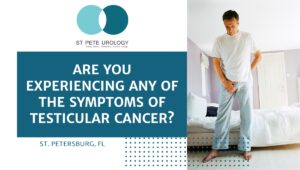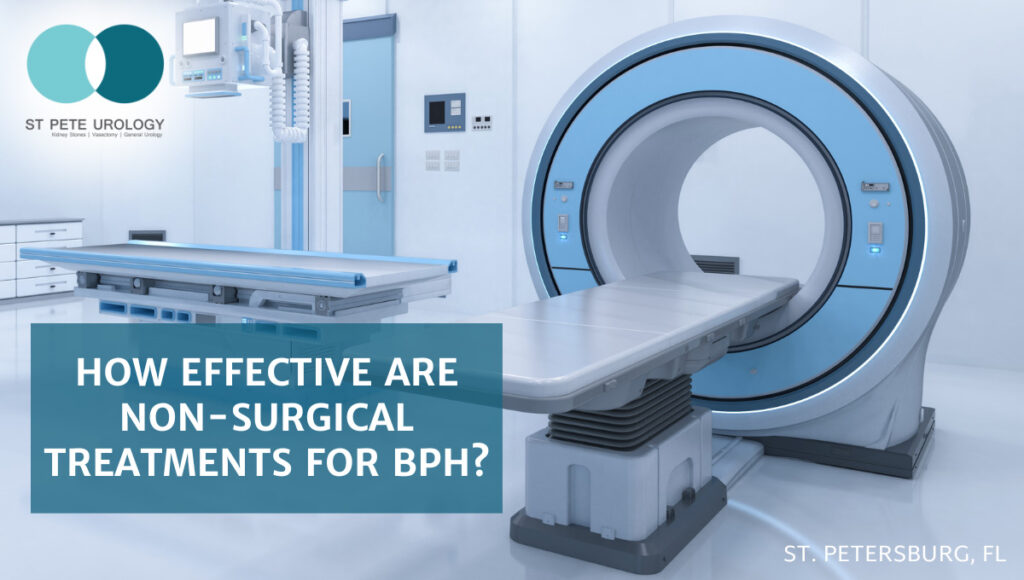Key Takeaways:
- Testicular cancer is the most common form of cancer in men ages 15-39, and swift treatment is essential for successful results.
- Common symptoms of testicular cancer include pain/discomfort in the testicles, a lump or swelling in the testicles, a sensation of heaviness in the scrotum, a dull ache in the abdomen or groin, and a sudden collection of fluid in the scrotum.
- Early detection and treatment of testicular cancer can improve survival rates, so it is important to be aware of any changes in the body and seek medical advice quickly.


Testicular cancer is a form of cancer that begins in the testicles. The testicles are located in a sac called the scrotum which is behind the penis. The main purpose of the testicles is to produce and store sperm, as well as produce the hormone testosterone. When cells in the testicles develop mutations and become cancer cells, it can then spread to other organs.
Symptoms
Being aware of the symptoms of testicular cancer is one of the most important ways to protect your health. Paying attention to any changes in your body may help you detect any signs early and get the treatment you need as soon as possible. Common symptoms of testicular cancer are:
• Pain or discomfort in the testicles
• A lump or swelling in either of the testicles
• Feeling sensation of heaviness in the scrotum
• A dull ache in the abdomen or groin
• A sudden collection of fluid in the scrotum
It’s important to note that testicular cancer usually only affects one of the testicles at a time, while the other one rarely involves itself in any way. Additionally, it’s possible to have a lump in one testicle, but not the other. Also, it’s important to note that these symptoms might not be a sign of testicular cancer. They could be a sign of a different issue, such as an infection or injury to the area.
Risk Reduction
To reduce your risk of testicular cancer, you should perform a monthly self-exam to check for any abnormalities. It’s important to become familiar with the normal size and shape of your testicles so that you’ll know what’s normal for you and can identify any changes.
If you are experiencing any of the above symptoms, you should seek medical advice as soon as you can. The sooner testicular cancer is detected, the better. This is because many of the treatments used to manage testicular cancer have potential side effects.
Treatment
If you are diagnosed with testicular cancer, there are several treatment options to consider. These include: surgery to remove the affected testicle, radiation and chemotherapy to eradicate any remaining cancer cells, and hormone therapy. Your doctor can determine which treatment is best suited for your particular condition.
Conclusion
In conclusion, testicular cancer is a serious health concern. Many young men are unaware of the symptoms of testicular cancer and it’s important for men of all ages to be aware of any changes in their bodies. If you are experiencing any of the common symptoms of testicular cancer, it is important to seek medical advice quickly. Early detection and treatment of testicular cancer can improve survival rates.
If you’re looking for a urology practice in St Petersburg, Florida, look no further than St Pete Urology. They offer the highest quality of urologic care and are dedicated to helping you achieve optimal health. Whether you’re looking for treatment for testicular cancer or preventative care to catch any warning signs early, St Pete Urology is here for you!
REFERENCES:
- “Signs and Symptoms of Testicular Cancer.” 17 May. 2018, https://www.cancer.org/cancer/testicular-cancer/detection-diagnosis-staging/signs-and-symptoms.html.
- “Testicular cancer – Diagnosis and treatment – Mayo Clinic.” 21 Oct. 2022, https://www.mayoclinic.org/diseases-conditions/testicular-cancer-care/diagnosis-treatment/drc-20352991.
- “Testicular Cancer: Types of Treatment.” https://www.cancer.net/cancer-types/testicular-cancer/types-treatment.




